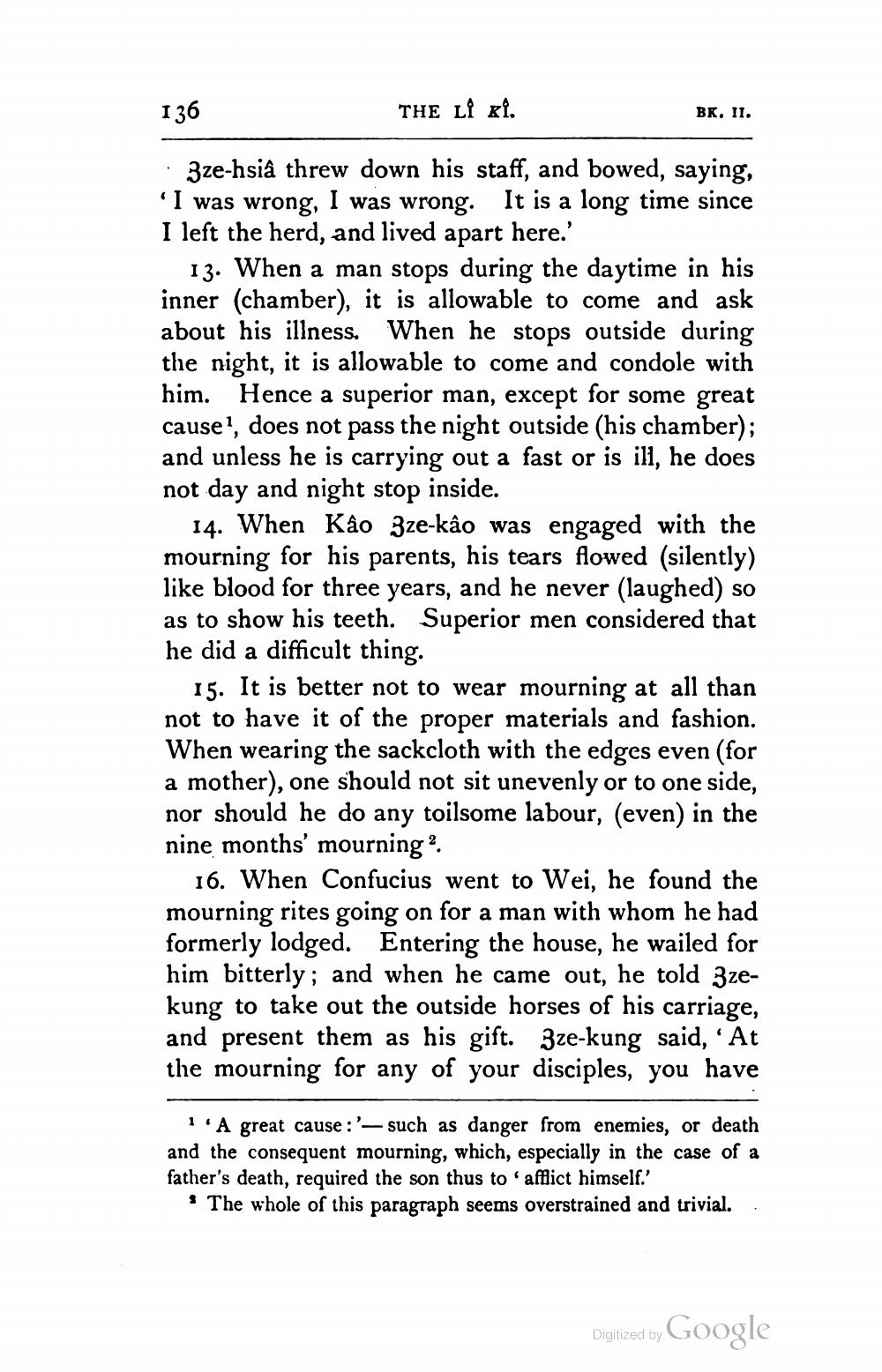________________
136
THE LI Kİ.
3ze-hsiâ threw down his staff, and bowed, saying, 'I was wrong, I was wrong. It is a long time since I left the herd, and lived apart here.'
BK. II.
13. When a man stops during the daytime in his inner (chamber), it is allowable to come and ask about his illness. When he stops outside during the night, it is allowable to come and condole with him. Hence a superior man, except for some great cause1, does not pass the night outside (his chamber); and unless he is carrying out a fast or is ill, he does not day and night stop inside.
14. When Kâo 3ze-kâo was engaged with the mourning for his parents, his tears flowed (silently) like blood for three years, and he never (laughed) so as to show his teeth. Superior men considered that he did a difficult thing.
15. It is better not to wear mourning at all than not to have it of the proper materials and fashion. When wearing the sackcloth with the edges even (for a mother), one should not sit unevenly or to one side, nor should he do any toilsome labour, (even) in the nine months' mourning 2.
16. When Confucius went to Wei, he found the mourning rites going on for a man with whom he had formerly lodged. Entering the house, he wailed for him bitterly; and when he came out, he told 3zekung to take out the outside horses of his carriage, and present them as his gift. 3ze-kung said, 'At the mourning for any of your disciples, you have
'A great cause:'- such as danger from enemies, or death and the consequent mourning, which, especially in the case of a father's death, required the son thus to afflict himself.'
The whole of this paragraph seems overstrained and trivial.
Digitized by
Google




